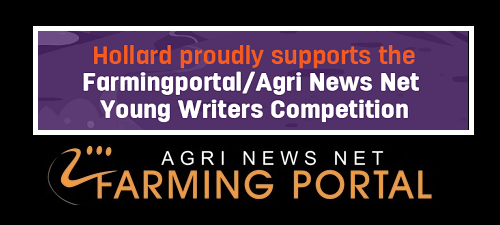Hollard Insure and Farmingportal.co.za and Agri News Net - Young Agri Writers competition- Rest of the winners ( In no specific order)
A wine farmer is a farmer who produces grapes for wine making, and who also make wine. Wine is not just alcohol, but also an agricultural product. South Africa ranks 8th among the largest wine-producing countries in the world, 8th among the countries that export the most wine, 13th among the countries that consume the most wine. (SAWIS, 2019).
Most of the South African industries have had tough experience due to Covid-19, but Wine Farmers face extra difficulties, they have found themselves thrown under the bus, not once, but twice, by a lockdown. Wine farmers face additional difficulties in obtaining wine due to additional restrictions on the movement of people and goods. Closing borders or slowing down the transboundary movement of wine hindered the supply chains of the wine industry and the timely delivery of wine with negative impacts on agriculture and grape production over the next season and further into the future.
The South African wine industry was severely weakened by the onset of COVID-19. The R49 billion-a-year industry has been affected in several ways, from export restrictions to the reintroduced national ban on the sale of alcohol. According to Capon (2020), the contribution of the wine industry to the GDP of the South African economy exceeds R49 billion annually and creates approximately 300 000 jobs directly and indirectly. Including a VAT contribution of R7.5 billion to SARS as of 2019. As the second largest export-oriented value chain for agriculture in South Africa, wine earns more than R9 billion worth of foreign revenue per year through exports of about 50% of total production, with the other 50% being sold locally.
The following was encountered by wine farmers due to covid-19: wine farmers losing their businesses, job loss, Industry suffered a direct loss of R3 Billion, more than 25% of Wineries and 40% of Grape Producers with cellars are not planning capital investment in their businesses at all in the next 12 months, there are millions of litres of surplus wine, Severe financial strain on empowerment projects with approximately 30% of Black owned brands and Black owned farms indicating that their businesses will not survive the current COVID-19 challenges, South African wine exports could decrease cumulatively between 41% and 72% in the next 3 years due to the temporary export restrictions, lost sales, and the market share the South Africa wine industry stands to lose, 64% drop in SA Wine tourism, 45% of tourism jobs impacted, Serious downward pressure on wine price/litre as stock levels increase and the next harvest is only few months away, farm gate income can be down as much as 30% (Capon, 2020).
Over 80 wineries and 350 grape growers are expected to go out of business, accounting for a possible loss of 21,000 jobs. Since the ban, nearly 250 million litres of bulk wine remained unsold. With the build-up of orders, South Africa's cellars are now at full capacity, while the industry is currently unable to sell to the local market. The new harvest is quickly approaching, bringing more worry. With so many wine farmers potentially going out of business, and the surplus wine, it would be much harder for winemakers to thrive. (Coleman, 2021).
To sum up, South Africa is one of the biggest wine-producing countries, is one of the countries that export the most wine and one of the countries that consume the most wine. Wine farmers are losing their businesses and employees losing their jobs. There are millions of litres of surplus wine, severe financial strain on empowerment projects, South African wine exports could decrease cumulatively. There is a drop in South Africa’s wine tourism, and tourism jobs impacted, downward pressure on wine price.
Vuyiseka Myek















